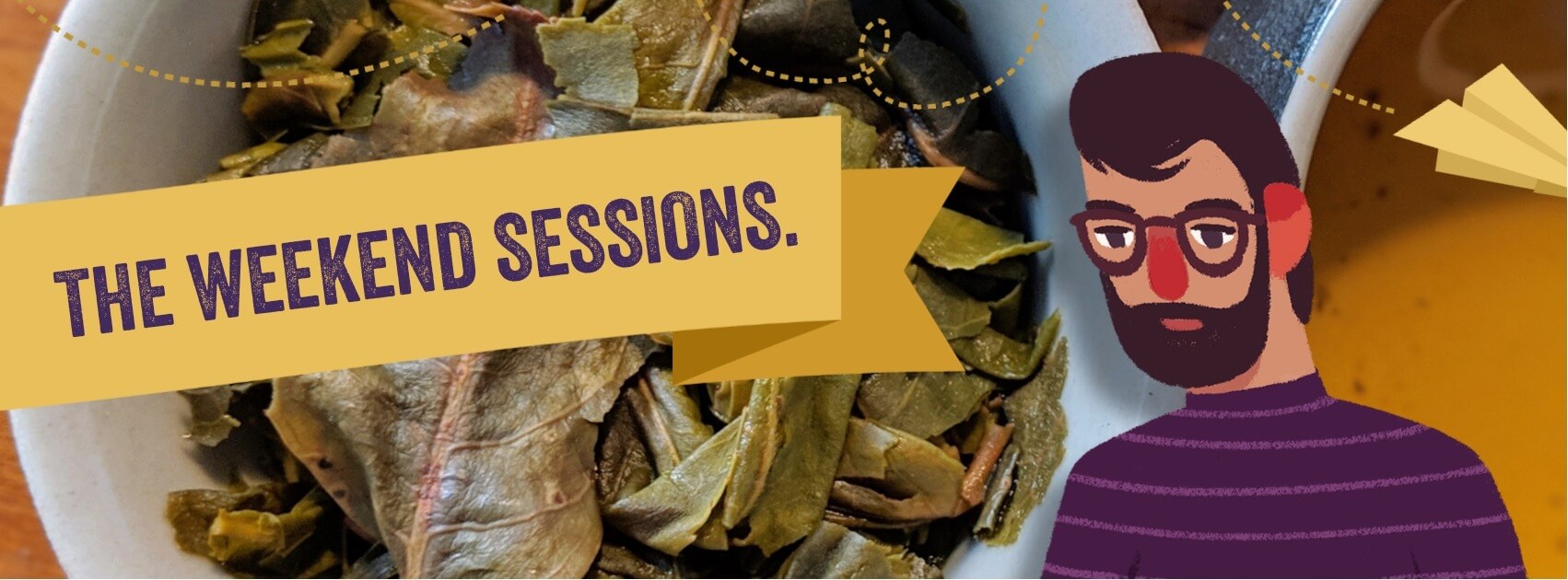A sample of Fangmingyuan’s 2008 Nannuo came to me as a free sample last year from Tiago over at Tea Encounter. I hadn’t heard of Fangmingyuan before checking out the Tea Encounter’s site, but I have been very impressed with the couple of teas I have tried from them so far.

Initial Impressions
The dry leaves have a strong aroma, much stronger than I was expecting based on how muted my teas are lately. Despite having a decade of age on it, the tea still has a floral scent to it, mixed with rice. After a rinse the leaves take on more of the expected aged smell, of earth, damp wood, and caramel.
For this session I am using 3.85 grams of tea in my 55ml gaiwan, water just off boiling, and infusion times starting at five seconds and increasing by five each steeping.

Infusions 1-3
2008 Nannuo starts out light and watery but with a strong sweetness. The mouthfeel remains loose for the second steeping but the taste gets sharper and more focused, while still remaining sweet and easy drinking. Infusion three comes on with a huge woody flavour that morphs to raisin as the liquor cools. The taste is a bit “one note,” but at the same time I’m loving what it’s giving me, so I won’t complain. What starts out as a light astringency at the first sip of the third infusion slowly grows to a pretty extreme level, and by the time I finish off my cup I need to grab some water.

Infusions 4-6
Infusion four is marked by even more astringency and a whole mouth tingling sensation that keeps me buzzing for minutes after my last sip. The fifth and sixth steeps gain some apple notes, and a caramel taste that lines up with the earlier aroma. Finally the texture is gaining a bit of meat, though it hasn’t become what I would call thick, it’s just getting to a place that I can enjoy.

Infusions 7-12
Not much changes in terms of taste from the fifth infusion on. The tea remains sweet with notes of caramel, raisin, wood and raisin. There isn’t a whole lot of interplay or re-arranging of the flavours, it all hits you at once and you need to dig around a bit to bring out individual tasting notes. The tea starts it’s decline early, with a noticeable drop at the eight infusion, but the fade out is slow and continues until the twelfth steeping.
Final thoughts
Fangmingyuan’s 2008 Nannuo has the same strengths and weaknesses as the other Fangmingyuan puerhs I’ve tried. The downsides are lack of mouthfeel and aftertaste, but the upsides are that it’s a wonderful tasting tea that I can’t get enough of. If the tea was selling for a higher price I would likely have something to complain about, but at about $0.30 CAD/gram I would love to have this tea in my pumidor and enjoy it for what it is, then have other teas to satisfy different needs.

